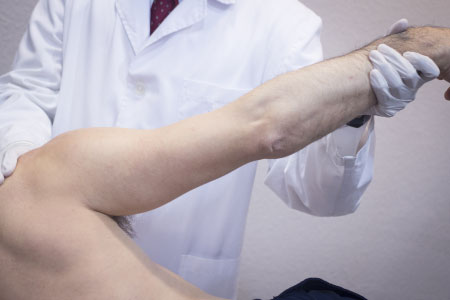2018 is right around the corner, and with it comes a whole slew of ICD-10 coding updates and changes. To stay on top of your coding game, you’ll need to learn changes in the CPT© code set, review NCCI guideline adjustments, get updates on ICD-10, and prepare for the OIG Work Plan.
Starting October 1, 2017, the new ICD-10 codes will be out, and there are quite a few that may affect your orthopedics coding practice. There are changes to the codes for non-pressure ulcers, spinal stenosis, phalangeal fractures of thumbs and great toes, as well as recommending exercising.
Changes This Fall
ICD-10 medical coding is complex and can feel overwhelming for coders, billers, office managers, practice managers and orthopedic surgeons. With annual updates and changes, using the correct coding for each patient encounter becomes challenging because even small mistakes can result in lost reimbursements, which of course hurts the practice’s bottom line.
Getting early access to orthopedic coding guidance on what’s most important for your 2018 claims is the key to success. Even before October 1, 2017, you should prepare to start learning the new ICD-10 codes so you don’t fall prey to denied claims in 2018.
Updates Are Specific, Widespread
Simply reading over ICD-10 changes and updates may not be enough to use them effectively. You’ll need to develop tools and tips for your providers and coders in selecting the correct ICD-10 codes. You’ll also need to understand codes outside orthopedics that may affect your office, such as physical therapy, grafting, and nerve repair codes. Many of these areas will undergo changes in 2018.
Other hot topics surrounding orthopedic coding, such as shoulder surgical procedures, evaluation and management (E/M), podiatry and durable medical equipment (DME) will grow more complex with the upcoming ICD-10 coding changes. Using the most specific code available – and avoiding “unspecified” if at all possible – will go a long way in ensuring your orthopedic coding stays current.
For example, understanding when modifier 59 is appropriate, from both a CPT© and an NCCI standpoint, as well as identifying the most commonly used codes in cases of trauma to the shoulder, will be must-knows for the orthopedic practice in 2018. You’ll need to see how a patient’s given situation will dictate not only the ICD-10 code, but also the seventh character that would apply for those injuries, fractures or trauma situations.
Expert Help Available
Expert orthopedic coder Margie Scalley Vaught addresses the new codes and guideline updates in an audio conference for ProfEdOnDemand, “2018 ICD-10 Updates for Orthopedics.” Margie will provide information from the official source of the ICD-10 coding guidelines as well as the Coding Clinics. This will help you develop tools and tips for your orthopedic coders, billers, managers and surgeons in selecting the correct ICD-10 codes in 2018 that will earn your practice the maximum reimbursement. Margie’s conference also presents an opportunity to ask about your questions or concerns regarding ICD-10 coding for orthopedic issues in the live Q&A portion of the session.


